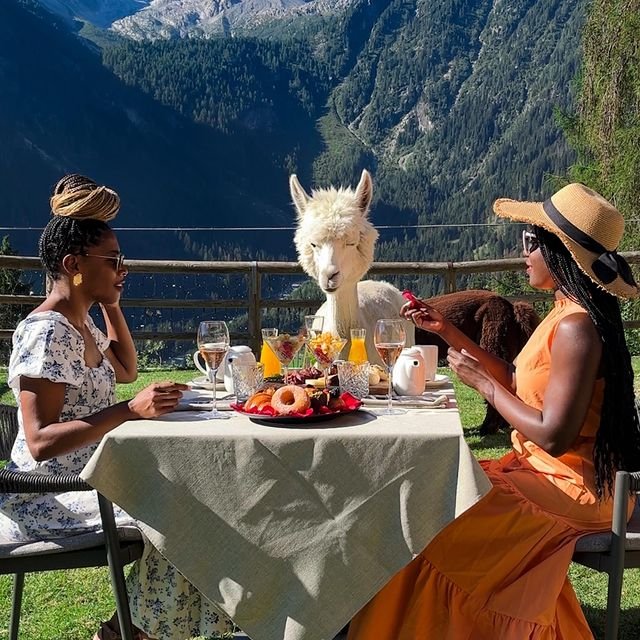Reflections on travel, safety, and how sharing my personal experiences might promote narratives that are false or inaccurate.
One of the things I’ve been thinking about lately is my responsibility as a travel blogger.
I don’t take it lightly that I’m a Black woman who travels and documents it for the world to see. At least once a day I get a comment or an email from a follower asking me for advice, thanking me for my recommendations, or telling me that I’ve inspired them to travel.
In this business, word of mouth is powerful. Trust is strong. And as someone who has made a career in travel media, every day I realize that my stories and recommendations reach farther and wider than I think, and that what I say has an impact and influences others to make certain travel decisions.
Opinions based on my race (I’ve written loads about how travelling while Black is different), gender, age, cumulative life experience, and socio-economic status, both past and present.
Why do I bring all this up? Well, I went to Brazil about 18 months ago, and I loved it. Rio de Janeiro stole my heart and Salvador de Bahia tugged at my soul. Quite honestly it was one of the best trips I’ve ever done; what made it more amazing is that I got to do it with my friends.

And, despite damning evidence that Brazil can be unsafe, I felt completely comfortable. My girlfriends and I trolled the streets at night, brandished our cell phones and fancy DSLR cameras in broad daylight, and took local taxis without issue.
Never at any moment during my 9 day stay did I feel my well-being to be compromised. I returned home feeling vindicated and invincible, telling Liebling his hushed warnings of “be careful” prior to my trip were wholly unwarranted.
Bolstered by these good feelings, I wrote the following on my Facebook page:
“Back in NYC after the most AMAZING, LIFE-GIVING two weeks in Colombia and Brazil. Bogota, Rio de Janeiro, and Salvador de Bahia are all beautiful and special in their own way and WELL deserving of your vacation time and dollars.
One thing I was struck by was how off-base many of the warnings I received about how dangerous/scary these three cities are were– while I took all the necessary precautions, not once did I feel unsafe. This reminded me just how important it is to go and see places for yourself– don’t let fear-mongering media reports and over-zealous, overly cautious advice from others keep you from seeing the world. Be careful, research, get travel insurance, pack your passport, a camera, and a huge memory card… Then get ready to have the time of your life.
The beautiful sights, hilarious and educational encounters with locals, and quality time spent in the company of my best friends made this one of the best trips I’ve been on in a while! Viva Colombia y Brazil!”
The takeway: “don’t believe the hype”. I dismissed the danger of Brazil. I wanted (and still want) to believe that it’s violent status is overblown. I told my readers and followers that it unnecessarily gets a bad rap from seemingly classist and racist news agencies.
And then this morning, I came across this video.
Joanna Franco, one half of the popular travel vlogging duo Damon and Jo, was shot in her hometown of Rio de Janeiro last month, during Carnaval. Her and her family were the victims of a failed carjacking; the bullet that struck her is still lodged in her back. Jo’s narration of events is chilling and heartwrenching.
Her testimony also makes me reconsider my cavalier stance, as well as how us bloggers frame our travel adventures and tips on our platforms.
I never want to spread false information or alternative facts. Ever the stickler, I always take care to specify that what I write and say is reflective of my personal experience, and I’m well aware that my experiences are tempered by who I am and the lens through which I see the world.
After all, I don’t know everything and I can’t speak to everyone else’s experience. For example, when I tell you how I didn’t suffer any racial discrimination in Russia in one breath (Russia has a documented history of racism against Black people), in the next I’ll tell you there are many extenuating factors that don’t allow me to draw an accurate conclusion. (The fact I was only there for 10 days, or the fact that I stuck to the tourist trail in the cosmopolitan cities of Moscow and St. Petersburg being a couple of them.)
And even though I was mugged and harassed in Egypt, I wrote about my reluctance to paint the country with the same broad brush. For what happened was unique to me– so many people have travelled the country without incident. As a result, I would never want to actively dissuade someone from travelling somewhere based on my personal experience.
But of course, it’s human nature to take advice from someone you know, like, and trust without a grain of salt; disclaimers like “Well, this is just my personal experience” all too easily get lost in translation.
And, as demonstrated in this example, sometimes it’s all to easy for travel writers to present their uninformed or biased assumptions about a certain destination as fact (a huge pet peeve of mine). Especially when it comes to travel, politics, warfare, and economics. (And especially when a trip is #sponsored by a tourism board or company– but more on that in a future post.)
Still, even though it’s not my intention, I worry that my thoughts and opinions on travel, as inaccurate and logically flawed as they may be, may be misconstrued as fact or gospel. I don’t want to “spread propaganda” in my travel narratives.
After all, I would never want someone to travel to Brazil without properly assessing the safety risks, or a fellow Black traveller to head to Russia thinking that racism will never be an issue because “Oneika the Traveller went and she was fine”.
Don’t get me wrong. I want my travel tales to inspire you to make the world oyster. But I also want you to go forth with your eyes fully open and your mind completely informed.
Do your research before you travel and consult a wide variety of sources (including mine, pretty please!) But be aware that, no matter how much information or anecdotes you may arm yourself with, fate could possibly have other plans that are inconsistent with your preconceived notions.


